Microsoft Reveals Iran Hacking Campaign Targeting Mideast Experts

Microsoft has revealed that "high-profile" experts specializing in Middle Eastern affairs are under attack from hackers believed to be linked to the Iranian government.

Microsoft has revealed that "high-profile" experts specializing in Middle Eastern affairs are under attack from hackers believed to be linked to the Iranian government.
The entities under attack were located in Belgium, France, Gaza, Israel, the United Kingdom, and the United States.
The Microsoft Threat Intelligence team, in a recent blog post, outlined that since November, a faction of the hacking group Mint Sandstorm has utilized "customized phishing lures to socially engineer targets into downloading malicious files."
The report notes the application of new tools in observed incidents. According to Microsoft, the operators in the Mint Sandstorm subgroup exhibit highly skilled social engineering capabilities, lacking many typical hallmarks that users rely on to identify phishing emails. In some instances, the subgroup used compromised but legitimate accounts to disseminate phishing lures.
Microsoft's findings indicate a correlation between the recent campaign and the ongoing conflict in Gaza, with phishing lures referencing the Israel-Hamas war. The objective is to gather diverse internal perspectives on the conflict.
Mint Sandstorm, also known as APT35 or Charming Kitten, is associated with the Islamic Revolutionary Guard Corps (IRGC), an intelligence arm of Iran's military. The campaign primarily targets people with access to information crucial to Tehran's leadership.
Prior instances involve the group targeting journalists, researchers, professors, and others with resource-intensive social engineering campaigns. Some cases featured legitimate yet compromised email accounts belonging to the impersonated victims.
Initial emails in some instances lacked malicious content as hackers aimed to establish relationships with their targets before initiating espionage processes.
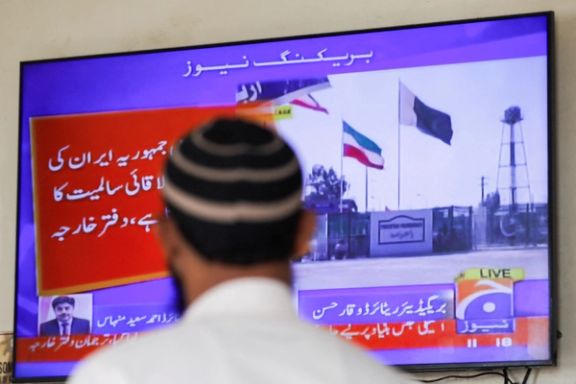
The insurgent Sunni Baluch group known as Jaish al-Adl (Army of Justice) has been a source of tension between Iran and its nuclear neighbor, Pakistan for years.
On the evening of January 16, Iran's Revolutionary Guards (IRGC) launched a missile and drone attack on two alleged Jaish al-Adl bases in Pakistan’s Balochistan Province. Pakistan recalled its ambassador from Tehran and retaliated two days later by conducting airstrikes inside Iranian borders against “terrorists”.
The crisis, which now seems to have been somehow managed by both sides, was unprecedented in the four-decade history of the two Islamic republics' relations because Pakistan had never before taken such military action inside Iranian borders.
Iranian officials have on several occasions in the past decade, including in 2019, complained that Islamabad has taken no action against the members of Jaish al-Adl finding refuge in its territory despite Iran's provision of relevant information including locations of the militants’ hideouts.
The group currently led by Salahuddin Farooqui who is known for his opposition to Iran's support for Bashar al-Assad in the Syrian civil war, fights for an independent Baluchestan consisting of Baluch people on both sides of the Iran-Pakistan border. The militants call Farooqui their “Emir” and “Leader of Baluchestan/Balochistan Jihad”.
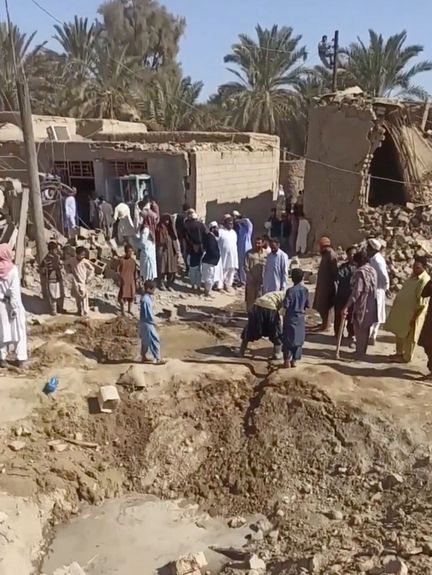
It is hard to say to what extent the group has support within the more than two-million strong Baluch population in Iran, which is the most oppressed and poverty stricken in the country. However, ordinary Baluch seem to be loyal to a charismatic Sunni cleric, Mowlavi Abdolhamid, regularly heeding his calls for peaceful protests against Iran’s Shiite government.
Jaish al-Adl has carried out dozens of large and small operations over the years against Iranian military forces, particularly the IRGC, including cross-border attacks and abduction of border guards and security personnel as well as bombings leading to the killing of civilians.
In a statement on its website (Shabake Adl) on January 16, Jaish al-Adl claimed targeting an IRGC vehicle carrying officers near the city of Iranshahr in Iran's restive Sistan and Baluchestan Province. The statement did not mention any casualties. Two days earlier the group had taken responsibility for an attack on an IRGC base in Saravan and claimed a sentry had been shot. The guards responded to the attack by “shooting aimlessly in various directions”, the group claimed.
Jaish al-Adl has been designated as a terrorist organization by Iran, whose officials often refer to it as Jaish al-Zulm (Army of Injustice) and “Takfiri terrorists.” The United States put the group on its foreign terrorist organizations list in 2010.
Iranian officials often allege that the group has ties with US, Saudi, and Israeli intelligence agencies and is funded by them.
Jaish al-Adl was founded by Abdul Rahim Mollazehi, a Baluch militant, in 2012 by reorganizing Jundullah (Army of God), also known as the People’s Resistance of Iran.
A few months after its emergence, on October 25, 2013, the group ambushed border patrols in Saravan in retaliation for the death sentences passed on 16 Baluch prisoners. Fourteen military personnel were killed, and seven others were seriously injured in the attack. Assailants, Iranian authorities said, fled to Pakistan’s tribal areas after the attack. Iran hanged all the sixteen prisoners the next day, claiming they were affiliated to Jaish al-Adl and other militant groups.
Jundullah, founded by Abdolmalek Rigi in 2002, operated in Iran's Sistan and Baluchestan Province and the adjoining Baluch-majority areas of Pakistan and Afghanistan and mainly demanded justice for the Sunni Baluchi population, and was not an overtly separatist group. Rigi said he considered himself as an Iranian citizen.
The militant group claimed responsibility for several bombings and assassinations such as the killing of 42 including five senior Revolutionary Guards commanders in Pisheen in 2009 but lost much of its power and influence in the region after Iran captured and executed Rigi in 2010. In 2013, Jundullah also claimed responsibility for bombing a church in Peshawar, Pakistan, in 2013 which killed 85.
Iranian authorities claimed that they had forced a commercial airliner flying from Dubai to Bishkek in Kyrgyzstan to land at Bandar Abbas International Airport based on intelligence indicating Rigi was onboard the plane with a forged Afghan passport. They also claimed Rigi had confessed to being in a US military base a day before his arrest.
The state TV showed Rigi being taken by masked commandos from the plane but there were also reports of him having been handed over to Iran by Pakistan and that Iran's claims were only a cover-up of Pakistan’s delivery of Rigi to them.
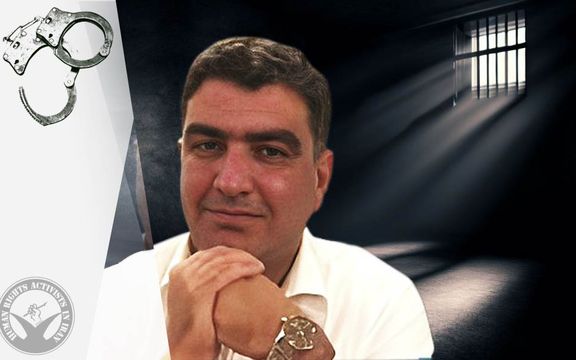
Khosrow Alikordi, an Iranian lawyer advocating the cases of families of protesters, has been handed one year in prison and two years of exile.
The verdict also includes a two-year prohibition on practicing law, travel restrictions lasting two years, and a two-year ban on online activities.
The judiciary accused Alikordi of engaging in "propaganda against the Islamic Republic system and in favor of groups opposing the regime." The lawyer revealed the court's decision on Saturday through his Telegram account.
The court cited Alikordi's interactions with both domestic and international media, as well as his activities and writing on online platforms as instances of "propaganda against the system."
In August, the Mashhad Revolutionary Court, initially sentenced him to imprisonment and additional penalties. The verdict was subsequently upheld by the appeals court.
Alikordi faced legal repercussions after taking on the legal representation of families of the victims of the 2022 uprising, including those of Abolfazl Adinehzadeh and Erfan Rezaei.
Presently, he is also advocating for other political prisoners such as Hossein, Mohammad Hossein, and Fatemeh Sepehri.
Since its establishment, the Islamic Republic has consistently targeted and detained lawyers, civil activists, and political critics.
The government's crackdown on civil, political, and protest activists has escalated since the nationwide protests against the Islamic Republic in September 2022.
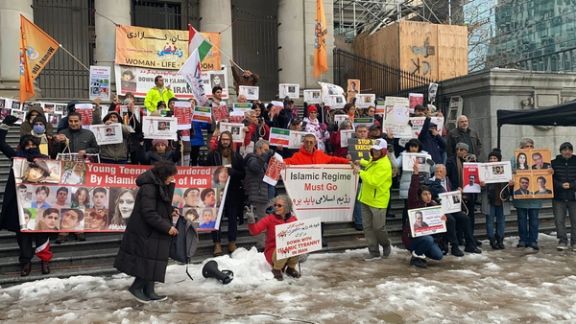
Iranians in 14 countries demonstrated as part of the "No to Execution" global campaign this weekend, against rising death sentences in Iran.
On Saturday, Iranians in Sweden, Canada, Germany, the United States, the United Kingdom, France, Austria, Belgium, Italy, Denmark, the Netherlands, Australia, Finland, and Iraq organized protests.
In Canada, Iranian residents in cities such as Toronto, Vancouver, Montreal, Ottawa, Quebec City, and Calgary braved extreme cold temperatures to voice their opposition to the death sentences.
Demonstrators conveyed their protest by displaying photos of those condemned to death with one hand and holding a symbolic rope in the other.
The global campaign, spanning from January 13 to 20, saw participation from over 100 groups, political parties, and more than 800 Iranian and non-Iranian activists.
Beyond the demonstrations, participants engaged in discussions with authorities in respective countries concerning the ongoing executions in Iran.
According to a report by the US-based Human Rights Activists News Agency (HRANA) on Thursday, at least 12 prisoners in Iran, charged with political or security-related offenses, currently face death sentences.
The political prisoners, held in Tehran, Karaj, Ahvaz, Kermanshah, and Zahedan prisons, have been condemned to execution by the revolutionary and criminal courts of the Islamic Republic's judiciary.
Charges such as "moharebeh" (waging war against God), corruption on earth, membership in opposition parties, and collaboration with foreign states are among the accusations that have led to the imposition of death sentences for the inmates.
Last year hundreds of political prisoners, protesters and those charged with drug offenses were executed as executions reached record numbers.
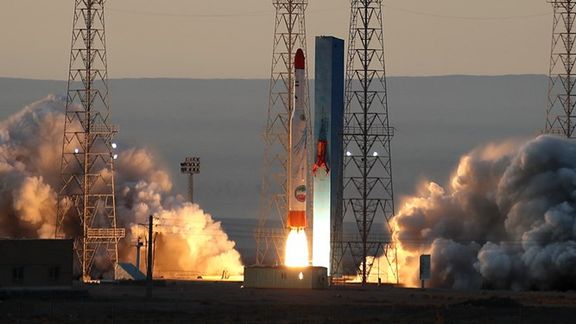
Iran announced Saturday a ‘new record’ satellite launch as part of its space program that many fear could be a cover for the regime to expand it ballistic missile program.
Official Iranian news agencies published images of a rocket blasting off, claiming that it carried and placed a homemade satellite to an orbit 750 kilometers above earth.
The announcement –not yet verified independently– comes days after Iran’s Revolutionary Guards (IRGC) used ballistic missiles to hit targets in three neighboring countries, and on the same day its proxies launched several ballistic missiles at a US base in Iraq.
The US military said, “most of the missiles were intercepted by the base’s air defense systems while others impacted on the base.” At least one Iraqi soldier was wounded in the attack and several US troops had to be examined for “traumatic brain injuries,” according to the US Central Command.
IRGC-affiliated media on Sunday morning focused on the news of "possible brain injuries" to US troops, amid a wave of popular sentiments on Persian social media about Israel's successes in eliminating senior IRGC officers in targeted strikes.
Iran insists that its satellite launches are for communications purposes, but many see the regime’s ‘space program’ as part of its missile program, especially since both are driven and governed by the IRGC.
A recent US intelligence assessment suggested that launching satellites “shortens the timeline” for Iran to develop an intercontinental ballistic missile. It is all the more worrying, experts say, since Iran is on the verge of nuclear capability, according to most intelligence estimates and recent International Atomic Energy Agency reports.
Earlier this week, the IAEA director general said Iran has enough enriched uranium to make “several” nuclear weapons, and it faces no “technical obstacle” to do so.
The US government maintains that Iran’s satellite launches are in contravention of the United Nations Security Council Resoluton 2231, that formalized the 2014 JCPOA nuclear agreement. Nevertheless, the Biden administration allowed UN other UN restrictions related to Iran’s ballistic missile program to expire in October 2023, ignoring calls for its renewal.
Biden critics say his Iran policy has been too soft and has emboldened the regime and its regional proxies to attack US interests.
“Exactly three years into the Biden Admin’s “clear-eyed hard-nosed diplomacy” with Iran, the regime is firing 15 ballistic missiles at our bases in Iraq,” former US state department advisor on Iran Gabriel Noronha posted on X. “And he didn’t get Soleimani for it either.”
Last week, just after he authorized airstrikes on Iran-backed Houthis in Yemen, Biden said “I've already delivered the message to Iran. They know not to do anything.” Since then, the Houthis have carried out more attacks in the Red Sea, including on a US warship, and armed groups supported by Iran have launched more missiles against US forces in Iraq.
Biden has admitted that the airstrikes against the Houthis have failed to stop their attacks on ships in the Red Sea.
A report in the Washington Post Sunday suggests that after ten days of “unsuccessful” airstrikes, the administration may soon opt for a “large-scale sustained military operation” against the Houthis.
That could bring the US one step closer to a direct confrontation with Iran, first because Houthi operations are directed by IRGC commanders, according to Reuters quoting Iranian and regional sources, and second because if it fails, the Biden administration might be left with no choice but to consider targeting IRGC directly.
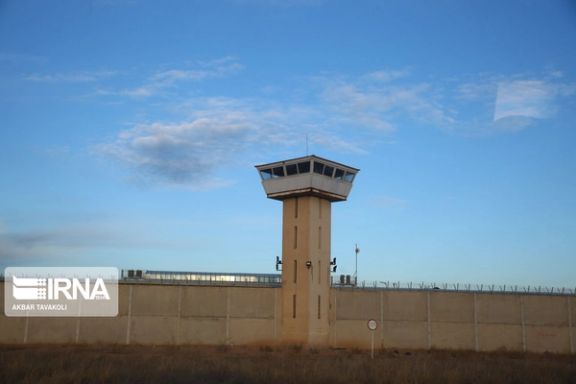
Over 2,300 teachers and citizens in Iran have expressed concern for the well-being of two teachers currently held in Adelabad Prison in Shiraz.
Iraj Rahnama and Gholamreza Gholami, serving as teachers in Fars Province, have embarked on a hunger strike since January 13 to protest the sentences handed down to them.
They were sentenced to five and eleven years in prison, respectively, by Branch 37 of the Fars Province Appeals Court in December.
In addition to their prison terms, they received "supplementary penalties," including a two-year travel ban resulting in passport cancellation and a two-year ban on online activities.
Furthermore, Gholami has been subjected to an additional penalty of two years of exile in Birjand, northeast of Iran.
The statement said, "The physical and age-related conditions of the two prisoners, combined with the substantial and irreversible risks of their hunger strike, have deeply worried their families, fellow activists, and the entire community."
In recent decades, numerous political prisoners in Iran, especially those undertaking hunger strikes in protest, have faced various health issues and serious injuries, with some losing their lives.
While the government's longstanding history of pressure and efforts to suppress teachers and activists persist over the past two decades, recent years have witnessed a significant surge in the detention of teachers and the imposition of severe prison sentences upon them.
For years, Iranian educators have been advocating for increased salaries and pensions, being among the lowest-paid segments of government employees. Additionally, they have voiced their opposition to the poisoning of schoolgirls, a crisis that emerged in Iran last year, impacting numerous educational institutions and affecting thousands of students.